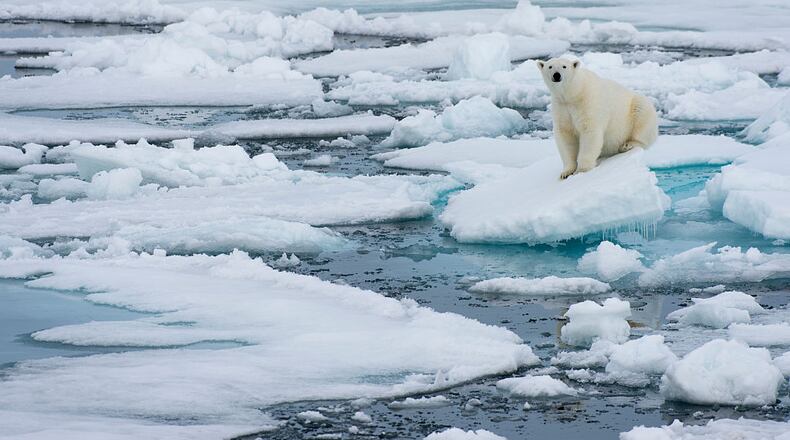Arctic sea ice, the vast sheet of frozen sea water floating on the Arctic Ocean, is at its lowest level ever, shrinking to a record low this year after two straight years of reduction.
NASA scientists and the National Snow and Ice Data Center said Arctic sea ice appears to have reached its "lowest maximum wintertime extent ever recorded." Between 1981 and 2010, the Arctic has lost a chuck of sea ice larger than the size of Mexico, the space agency reported, or about 20,500 square miles every year.
The Arctic is one of the areas hardest hit by climate change, researchers said.
Antarctic sea ice also shrank to its lowest levels ever after decades of moderate expansion.
NASA has been using a fleet of research aircraft over the past eight years in program called Operation IceBridge to take images of Earth's polar ice in a mission to "better understand connections between polar regions and the global climate system."
IceBridge scientists measure the annual changes in the thickness of sea ice, glaciers and ice sheets, and conduct aerial surveys of polar ice.
Arctic wildlife, such as polar bears, depend on sea ice, which also acts as the Earth’s thermostat, helping to regulate global temperatures.
About the Author
The Latest
Featured

